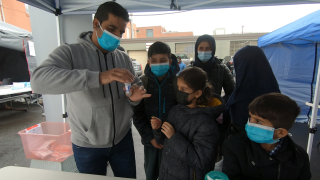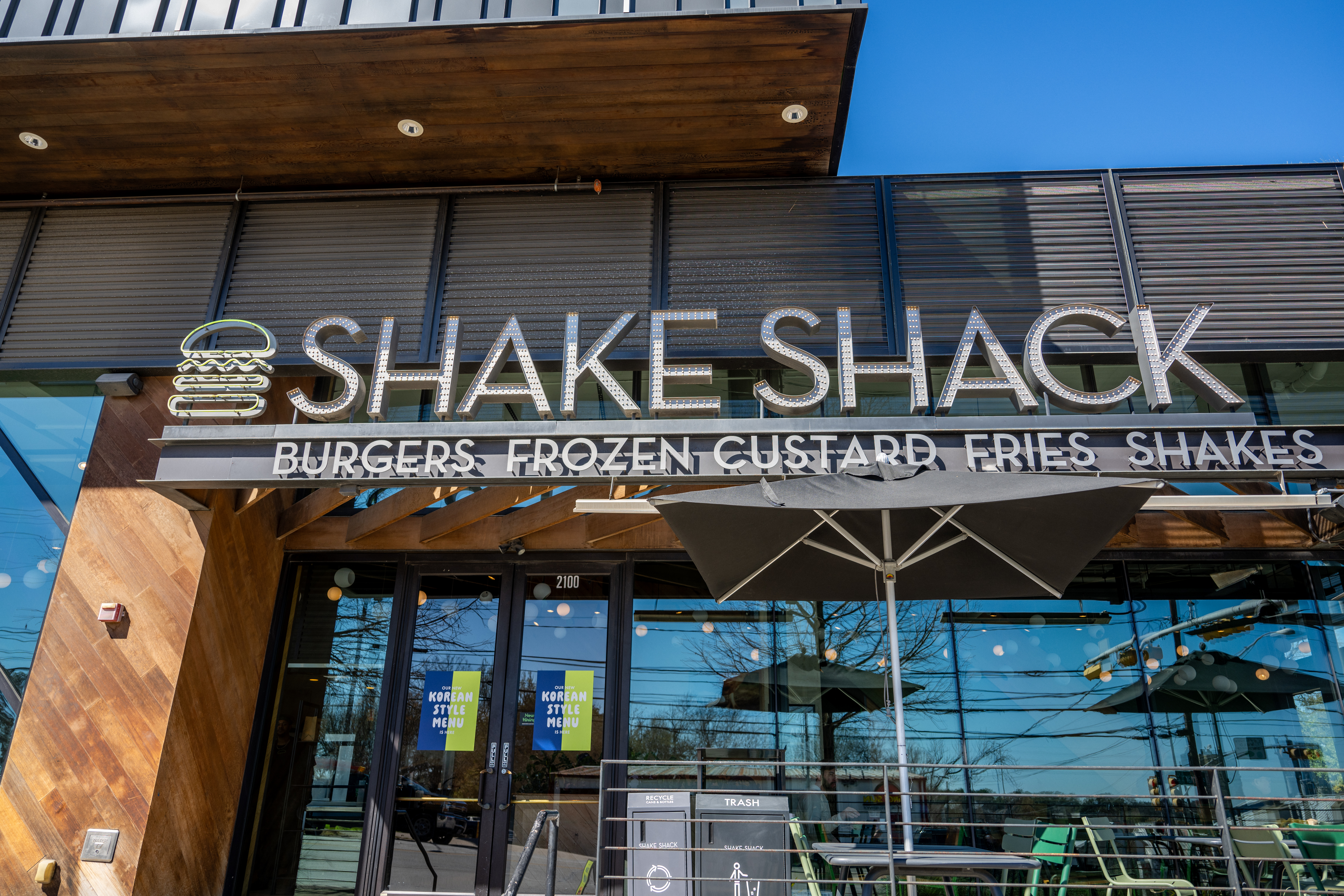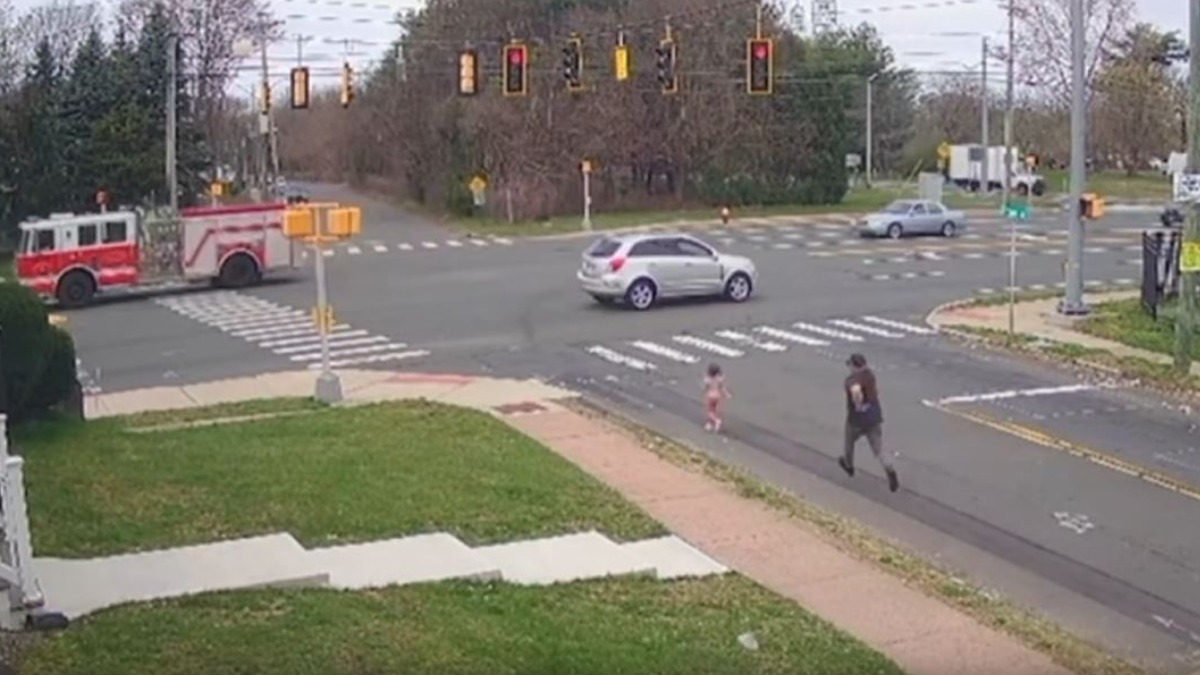
A father of five says COVID-19 testing is just one of the many things he is grateful for now that he has left Afghanistan.
In New Haven, Integrated Refugee and Immigrant Services, or IRIS, continues to welcome people just like him.
Right after the Taliban takeover, that non-profit resettled 390 evacuees in October through December of last year. While that unprecedented influx has slowed down, according to executive director Chris George, IRIS still expects to resettle up to 700 Afghan evacuees in Connecticut this year.
As those people start new lives, they are welcoming the opportunity to get a COVID-19 test, something that was much harder to do in Afghanistan.
Get Connecticut local news, weather forecasts and entertainment stories to your inbox. Sign up for NBC Connecticut newsletters.
“We are happy to be here,” a man who goes by Ajamal said.
From his family of seven, to another mom of five, families lined up outside of IRIS Wednesday morning to get COVID-19 tests administered by SalivaDirect.
The testing site in New Haven is a collaboration between SalivaDirect, the Yale School of Public Health, and IRIS. It opened at the beginning of January.
Local
“The kids are going to school,” Khatima Qasimi said about her reason for bringing her five children for getting tested.
“I’m very happy because, COVID test is very good for you, everyone. It’s for our health,” Ajamal said.
Besides getting tested, these families share something else in common. Although they are living in Connecticut now, they have recently fled Afghanistan.
Qasimi, who stayed in northern Afghanistan for two weeks after the Taliban takeover, recalls a grave atmosphere.
“Everywhere it was just silence. No one was walking. And everyone was at home, people were scaring a lot. And no one feel safe. Everyone remained at home,”
Qasimi said she was in peril simply for being a woman.
“No woman can get education. No one can go to school, no one can go to the job. And everyone is at home and everyone is insecure. The situation is not good,” she said.
Ajamal, who now goes by that pseudonym for safety, faces grave danger from the Taliban because of his work as an interpreter.
“I was an interpreter back in Afghanistan, so my life was at risk,” he said. “So I have to come here to save my life. And for say my family. That's why I came here.”
As both families settle into new lives, they are taking advantage of one more resource to keep them safe.
“I have five children, they all did the test,” Ajamal said.
In the four weeks since the SalivaDirect testing site has been open in New Haven, about 200 people have taken tests. Organizers say that includes about a dozen Afghan evacuees every week.
“This is just what I'm most proud of is just to see this out on the field like actually within the community making the difference,” Dr. Anne Wyllie, Yale School of Public Health research scientist and principal investigator for SalivaDirect, said.
Dr. Wyllie developed the SalivaDirect PCR test in early 2020. Different than a nasal swab, it tests for COVID-19 through a saliva sample.
“We wanted to develop a test that was going to increase access to testing, and to make testing more accessible in the community, to make it more affordable,” Dr. Wyllie said.
All the tests done at the SalivaDirect site go to the Yale pathology labs for processing. Lab costs are just $1 to $4 dollars per sample.
People will receive their results within 24-hours through a HIPPA-compliant online portal.
This “New Home, New Haven” COVID-19 testing program is being funded by a $40,000 grant from the Rockefeller Foundation. Organizers said testing will continue as long as funds last, likely for several months.
“For these families, not only do they have that barrier of accessing the healthcare system, when they arrive here, they also have a language barrier,” Sumaira Akbarzada, SalivaDirect liaison at Yale School of Public Health, said.
Akbarzada understands firsthand the challenges these new arrivals are facing.
“I was born in Kabul, Afghanistan, and my family arrived as refugees to the United States in the early 1990s,” she said. “I’m very well aware of the situation there.”
She said most people are vaccinated for COVID-19 as soon as they arrive in the U.S., but during the incubation period, when they’re also looking for new homes, schools, and health care, these tests are important.
Throughout the pandemic, testing for COVID has looked very different in Afghanistan.
"On average, COVID test in the country can cost up to $100, and keeping that in mind, the average monthly income for families $300,” Akbarzada said. “So a lot of the families that are evacuated, they've never been tested for COVID before."
The new arrivals at the testing site Wednesday, said they have many reasons to feel grateful.
“I save my family and me. And I'm very happy to here,” Ajamal said.
Getting tested is just one step in their new ventures, now defined by support and safety.
“I see my kids’ future brighter here,” Qasimi said. “Very bright because in Afghanistan, it was not security. Explosion everywhere, every time. I appreciate the support that I have for everything, that I'm grateful for.”



